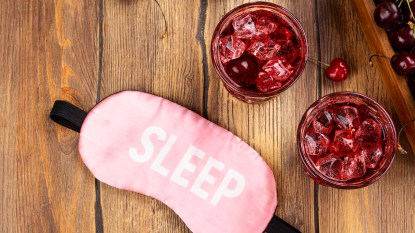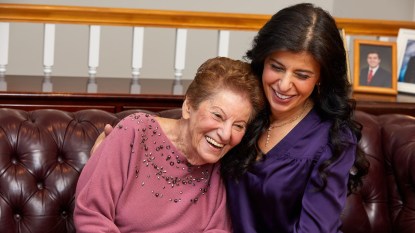Understanding Menopause: Age, Symptoms, and Treatment

In your 50s (or sometimes earlier), this is the time in your life when you are likely to experience menopause. This is where you stop releasing eggs from your ovaries and your periods stop. It usually happens across a number of months, with periods becoming more and more irregular.
Most of us will experience some symptoms as we reach menopause. Some of us might notice some weight gain and the odd hot flash, while others will experience senior moments, night sweats, debilitating hot flashes, and mood swings. Understanding what is happening to your body during this time is an important part of managing your symptoms and finding the right solution for you.
What is the average age for menopause?
The average age for menopause is 51, but don’t be surprised if you start to get symptoms in your late 40s too. Take a look at your family history for an idea of when you might go through it. It’s likely to be a similar age to when your mother or older sisters started theirs.
What will happen to your hormones during menopause?
Menopause happens when your ovaries stop producing the hormone estrogen. Your periods stop and you officially reach menopause when you have gone 12 months without a period. “But,” says Annabelle Burnham, Consultant Obstetrician and Gynaecologist for healthcare website Medstars.co.uk, “your ovaries don’t work perfectly one minute and stop the next – for between six months to two years they will work haphazardly, causing the symptoms we associate with menopause such as hot flashes and night sweats.”We also have hormone receptors in our brains. This is why some women complain of problems with their memory and experience confusion during this period. The withdrawal of estrogen is also behind the mood swings that affect some women.”
What are the symptoms of menopause?
The two main menopause symptoms are hot flashes and night sweats which affect three out of four menopausal women. The sudden feeling of heat spreading through your body is hard to ignore and for some women, it’s accompanied by palpitations and sweating. This happens because as levels of estrogen fall the part of your brain that acts as your body’s thermostat (the hypothalamus) is thrown off course. Hot flashes can make you feel embarrassed and self-conscious and at night they can affect your sleep leaving you tired and grumpy. Other symptoms can include headaches, weight gain, and depression.
What treatments are available for menopause?
Thankfully there are lots of treatments available from hormone replacement therapy (HRT) to self-help and herbal treatment and dietary changes.“It’s a case of each woman finding the right approach to treatment for her,” says Norma Goldman, a pharmacist and founder of The Menopause Exchange, an independent organization offering information and advice. “Whether that’s going to be HRT, complementary therapies, or nutrition. It’s all comes down to personal preferences and often trial and error, but there’s plenty you can do to help yourself during this period.”
What does hormone replacement therapy do?
“Modern women have busy lifestyles,” says Annabelle. “Dealing with debilitating hot flashes and night sweats that make a good night’s sleep impossible can hamper work and being able to enjoy yourself.”
“In my opinion, medically replacing lost hormones is an effective and safe way of controlling these symptoms by regulating the production of estrogen in the body.” But it’s not right for everyone – speak to your GP who will look at both your personal health and your family history as well as your symptoms and help you decide whether HRT is right for you.
Can changing my diet help ease menopause symptoms?
Eating well during menopause could help control symptoms. Nutritionist Amanda Ursell also recommends that you get your iron levels checked. “Menopause can leave you feeling tired making a balanced diet especially important, and if your iron levels are low then you should take a supplement,” says Amanda. “I suggest eating foods such as lean red meat, dried apricots, dark green vegetables, and plenty of slow energy releasing wholegrain foods. It’s important to avoid the blood sugar swings that come from a poor diet which could make your symptoms worse.”
Can yoga help with menopause?
Yoga could help with the stress associated with fluctuating hormone levels. “Yoga can help balance your hormones, alleviate pain and reduce the symptoms of low mood and anxiety, ultimately moving you towards a better state of mind,” says Cheryl MacDonald, founder of YogaBellies, which runs yoga course designed for menopausal women. “When it comes to physical exercise, women see yoga as much less intimidating than say, Zumba or Pilates and you can work at your own pace.”
How can I combat vaginal dryness?
Another problem associated with menopause is vaginal dryness, again due to plummeting estrogen levels. Your GP can prescribe vaginal estrogen treatments, or you can buy non-hormonal products from your pharmacy.
This article originally appeared on our sister site, Yours.













